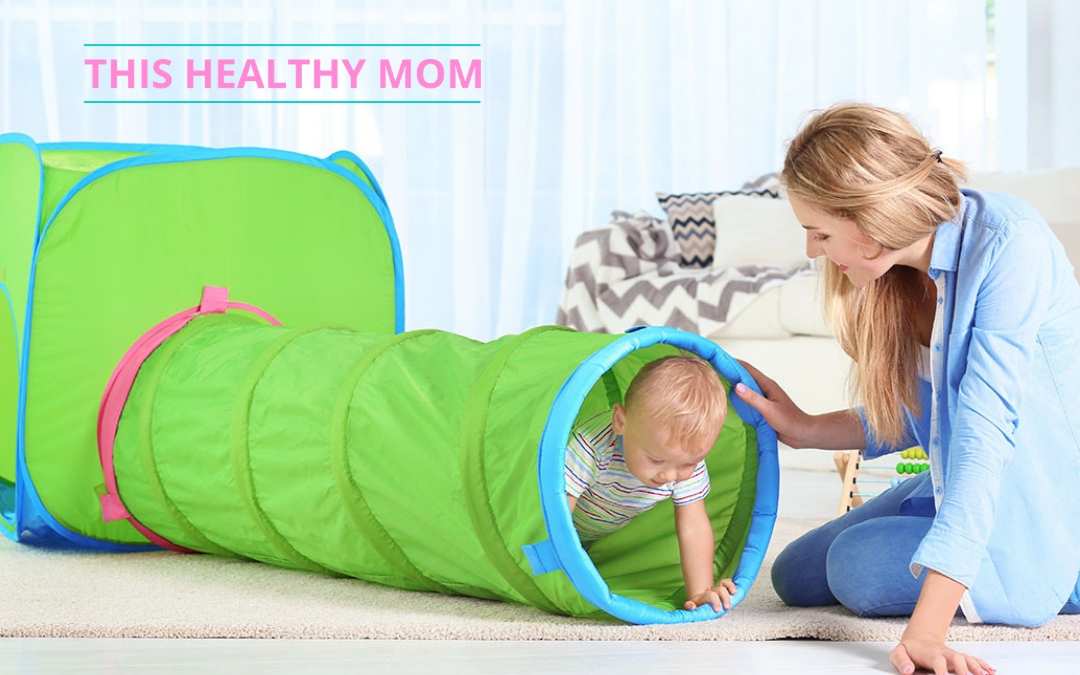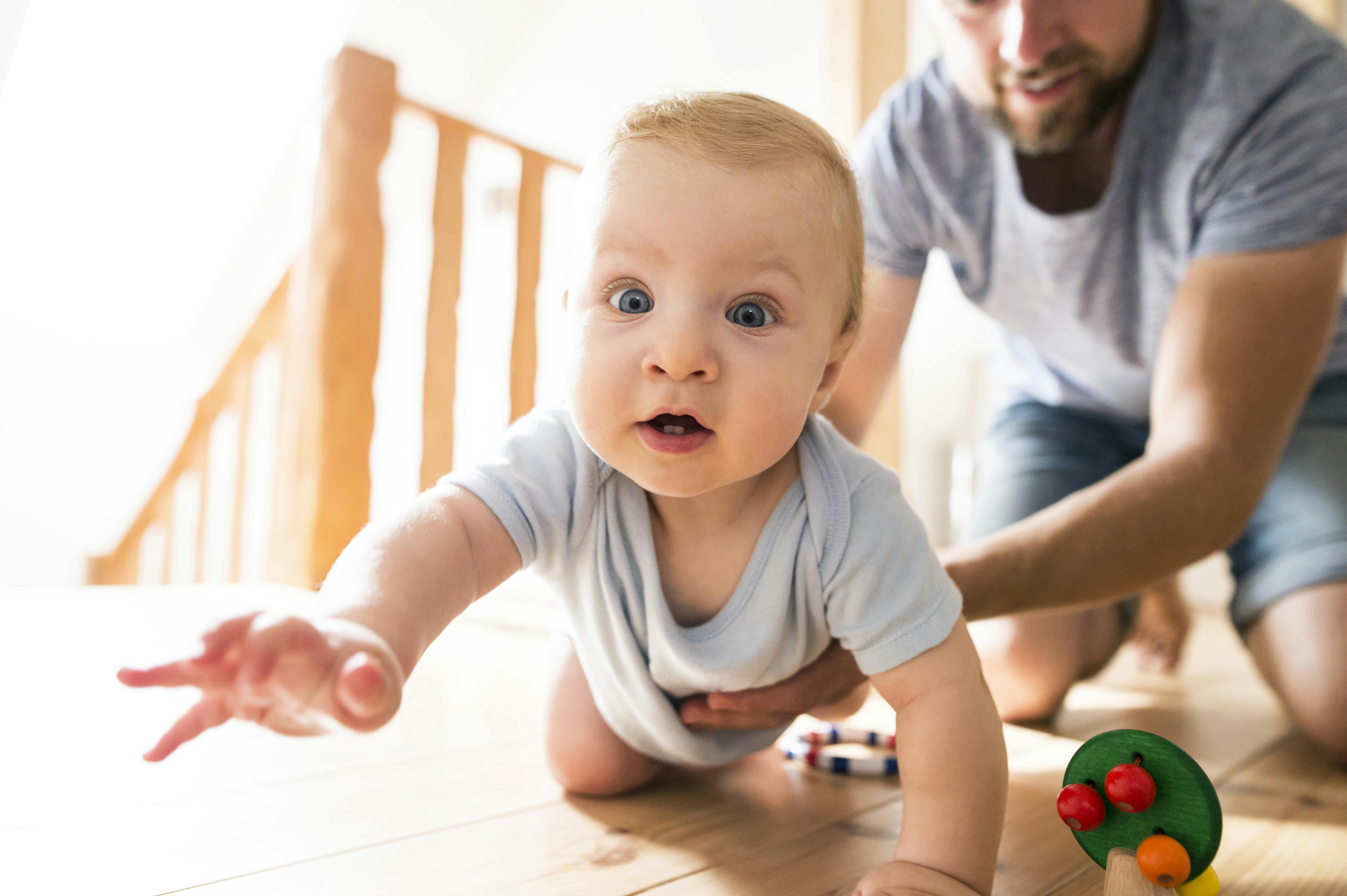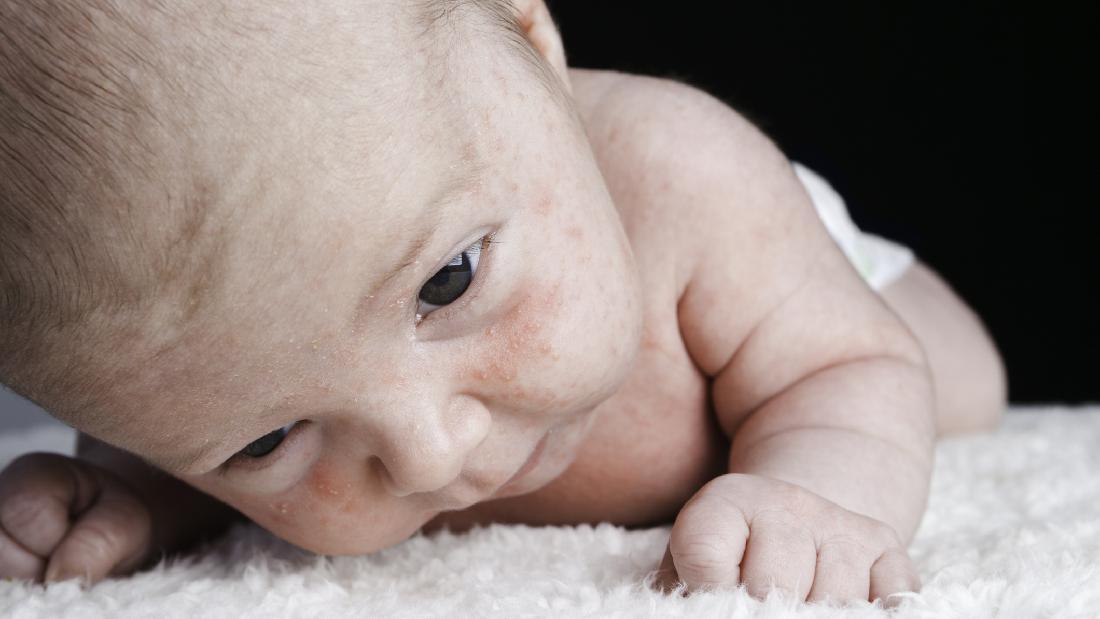A baby may begin crawling as early as six months and may display scooting at this age (3). This tummy time is important for baby as it strengthens core muscles needed to become mobile.

Salep Gatal Untuk Bayi Yang Aman Digunakan
Your baby may start learning to crawl when she's between six months and nine months old.

When do babies start crawling nhs. Some babies crawl long before they cruise, but not all do. When do babies start crawling. Most children begin to crawl between seven and nine months of age.
The healthy development of a baby is the primary concern of most parents and every new skill the child learns is celebrated. (all that upper body strength helps them. Babies tend to learn to crawl after extensive time on their tummy.
As soon as they show signs that theyre learning to roll over or they can already roll over, you need to transition them away from swaddling (greviskes, 2012; Babies typically begin to crawl between 6 and 10 months , although some may skip the crawling phase altogether and go straight to pulling up, cruising, and walking. Babies who bottom shuffle can move very quickly and their hands are free to play with toys and can carry them while moving.
Its a good idea to do another baby safety check around your house. Babies with down syndrome need some extra support and care in order to learn how to crawl correctly. (and, about 7% of babies skip crawling altogether!) also, if a child is a bit bigger or heavier than is typical for his age, he may crawl later as.
Your baby crawling usually begins somewhere between six and ten months after birth. Sleep training helps little ones settle into a routine credit: Like most developmental milestones, crawling starts at any point across a fairly long rangeanywhere from 5 to 13 months of age, with half of all babies starting to crawl at about 8 months of age.
Crawling is a skill most babies get the hang of by the time they're a year old. This can happen while the muscles in their legs get stronger (nhs choices, 2017b). Initially, the baby may sway or rock forward and backward on their hands and knees (5).
When do babies roll over nhs. Most babies are not capable of any locomotion until they learn to roll over ; Baby walkers allow babies to walk abnormally (often on tip toes), and do not strengthen the muscles needed for sitting, crawling or independent walking.
When do babies start crawling; They often have little motivation to pull up to stand on their feet or use their arms to crawl. When do babies sleep through the night?
Your baby will possibly start to crawl at around 7 to 10 months. If this continues, seek advice from your gp. By the time they reach their first birthday , they're likely to be crawling well and exploring their surroundings (sheridan 2014)
In the beginning, your baby might walk with their feet at a slight angle; The nhs says babies begin crawling around nine to 12 months old. Most babies display scooting between the ages of eight and 12 months, with the average age being nine months (4).
When do babies start crawling? When do babies start crawling? However, if your baby isn't showing any signs of moving by 12 months, ask your paediatrician for advice.
Crawling is your babys next big achievement after sitting up. By the time she's a year old, she's likely to. Somewhere between 7 and 10 months, most babies start to crawl.
She may be able to move forwards or backwards on all fours as soon as she's six months or seven months. Let the home adventures begin. Your baby may start learning to crawl from about six months and most babies are moving around by the time they're nine months old (nhs 2016a).
Your baby may start learning to crawl between six and nine months old. Cruising can start from around eight months, but dont worry if yours doesnt. 12 mar, 2012 when do.
Baby crawling, or creeping, is an important motor milestone that builds the foundation for higher level motor skills including walking, running, climbing, ball skills, and playground skills. By 5 months most babies will start to reach for an object progressing at 6 months moving the object from one hand to the other. It is much more important to give a baby a safe space on the floor to roll, crawl and pull themselves up.
Most babies learn to crawl between the ages of 6 months to 12 months. When do babies start crawling. Below, you are able to read the whole 5p baby crawling system program which will help you get over this demanding obstacle in your baby's life.
When your baby does start walking, it happens in stages, which include these big milestones: But most babies don't learn to crawl for a few more months after that (sheridan 2014). Babies start to sit up on their own.

Did Your Child Skip Crawling Its More Than Just A Milestone - This Healthy Mom

Late Bloomers When Babys Development Is Slow Going Parents

When Do Babies Start Crawling Baby Mother Baby

When Will My Baby Crawl - Babycenter Canada

When Do Babies Crawl Crawling Styles Chart Pampers

Adorable Little Baby Crawling Near Mother Crawling Baby Baby Little Babies

When Do Babies Start Crawling Baby Mother Baby

5 Benefits Of Regular Tummy Time Teach Investigate Play Tummy Time Childcare Activities Early Childhood Development

6 To 12 Month Developmental Milestones For Babies The Tot

Photo Library - 2d Images Reference Classic Modern Styles Anatomy Drawing Crawling Baby Baby Development Baby Images Hd
Penyebab Dan Ciri Bayi Tidak Cocok Susu Formula Enfa A

Tummy Time - Baby Begin Tummy Time Baby Sleep Problems Tummy

Is It Normal For My Baby To Crawl Backward Babycenter

Commonly Asked Questions About Babies Crawling Awkwardly

Developmental Milestones Crawling - Babycenter India

When Do Babies Crawl Child Development Baby Development Toddler Development

Pin On Vintage Graphics Designs

Cara Menghilangkan Milia Pada Bayi Secara Alami

When Do Babies Crawl Baby Crawling Baby Health Crawling Baby Healthy Babies
When Do Babies Start Crawling Nhs. There are any When Do Babies Start Crawling Nhs in here.